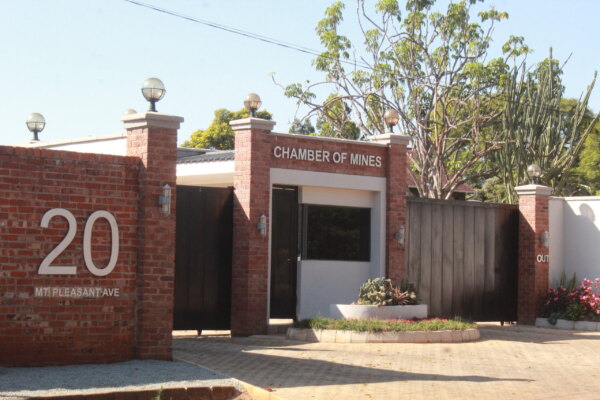The Chamber of Mines of Zimbabwe has called on the Zimbabwe School of Mines (ZSM) to take a leading role in equipping artisanal and small-scale miners with technical and managerial skills, saying this would help formalise and strengthen one of the country's most critical yet underdeveloped mining sectors.
Speaking during the institution's 31st graduation ceremony held in Bulawayo yesterday, Chamber of Mines president Mr John Musekiwa, who was the guest of honour, described the small-scale mining sector as a cornerstone of Zimbabwe's economy, contributing over 60 percent of total gold production.
"We are all aware of the importance of small-scale mining for the economy," said Mr Musekiwa. "The artisanal and small-scale mining (ASM) sector has a significant footprint in gold, chrome ore, semi-precious stones, and tantalite production."
However, he noted that despite its contributions, the sector continues to face serious challenges including lack of technical skills, access to capital, financial literacy, and poor record keeping, all of which hinder sustainable growth.
"ZSM is uniquely positioned to address these gaps," Mr Musekiwa said. "Graduates from this school can play a critical role in transforming the ASM sector into an efficient and competitive force within Zimbabwe's mining landscape."
Running under the theme "Unlocking the Future: Embracing Mining Technologies," the event celebrated 405 graduates who completed courses in various mining disciplines, including small-scale mining. Of these, 20 students graduated with certificates in Small-Scale Mining - four females and 16 males.
Mr Musekiwa encouraged the graduates to look beyond traditional large-scale mines and consider opportunities within the small-scale sector.
"I urge you to explore careers in small-scale mining," he said. "It can be rewarding to see a mine grow from a small entity into a well-run medium or large-scale business - knowing you played a role in that transformation."
The small-scale mining industry employs over 300,000 people, contributing significantly to rural livelihoods and poverty reduction.
Turning to global trends, Mr Musekiwa highlighted the importance of technological innovation - including artificial intelligence (AI), automation, and the Internet of Things (IoT) - in shaping the future of mining. He urged ZSM to anticipate these shifts by aligning training programmes with emerging industry needs.
"Strategic foresight will ensure that graduates remain relevant long after leaving the school," he said. "The school should also consider bridging courses for experienced miners to upgrade their digital skills and remain competitive in the evolving job market."
While commending ZSM's efforts in maintaining strong industry ties, Mr Musekiwa acknowledged the challenge of accommodating all students on industrial attachment due to rising enrolments.
Attachment placement rates, however, have shown steady improvement - rising from 64 percent in 2020 to 93 percent in 2024. Mr Musekiwa applauded this achievement and praised the school for producing well-rounded, employable graduates.
"Graduation trends show a steady increase, peaking at 428 in 2024. This year, 405 graduates are being honoured, with women making up 32 percent - a positive step for gender inclusion in mining," he said.
He also commended ZSM for introducing new programmes that align with Vision 2030, including Diplomas in Jewellery Manufacturing and Design, Foundry Technology, and Iron and Steel Making.
Presenting his report, ZSM principal Mr Edwin Gwaze said the school's strong enrolment and graduation figures demonstrate its sustained relevance and growth.
"Between 2020 and 2025, we maintained annual enrolments above 1,000 students, while graduations rose from 188 in 2020 to 405 in 2025," Mr Gwaze said.
He expressed gratitude to the Chamber of Mines and its member companies for supporting ZSM's training programmes by providing attachment opportunities.
"Our average attachment rate over the past five years has remained above 75 percent, peaking at 93 percent last year. This reflects the strength of our partnerships with the mining industry," he said.
Mr Gwaze added that such collaborations ensure ZSM graduates are industry-ready, equipped with both technical expertise and the practical experience required to thrive in Zimbabwe's evolving mining sector.
- The Chronicle
 OK Zimbabwe posts US$17,8 million loss
OK Zimbabwe posts US$17,8 million loss  Hichilema meets Chivayo
Hichilema meets Chivayo  Millions celebrate Diwali festival in India
Millions celebrate Diwali festival in India  Econet Zimbabwe to delist from ZSE
Econet Zimbabwe to delist from ZSE  Gold edges up as traders await guidance
Gold edges up as traders await guidance  Mnangagwa fires Chitando, appoints Polite Kambamura
Mnangagwa fires Chitando, appoints Polite Kambamura  Young Investment Professional (YIP) Graduate Programme 2019
Young Investment Professional (YIP) Graduate Programme 2019 











 Young Investment Professional (YIP) Graduate Programme 2019
Young Investment Professional (YIP) Graduate Programme 2019
Editor's Pick